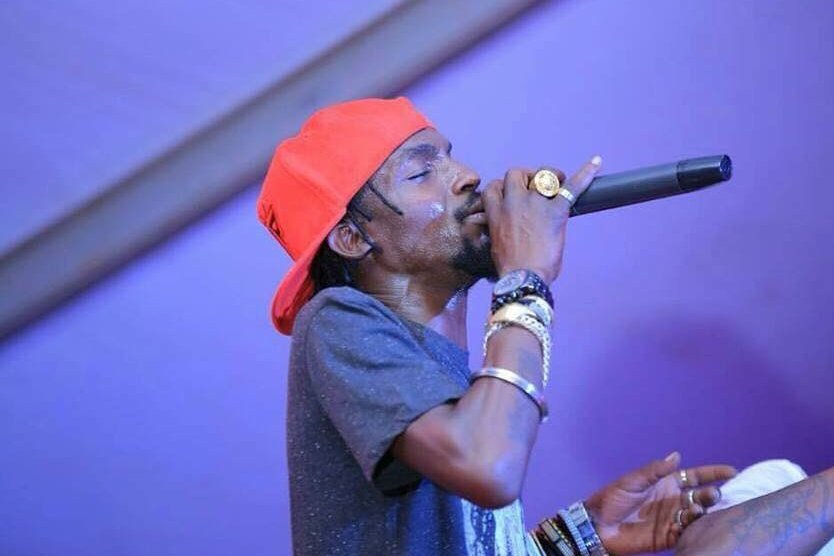Singer Weasel Manizo real name Douglas Mayanja on the morning of Wednesday questioned event promoters who bring to Uganda foreign artists and go ahead to perform local artists` songs without their permission.
Weasel`s rant came after Nigerian singer Chike real name Ezekpeazu Osebuka who had a show at Serena Hotel on Tuesday, 15th February 2022 opened up his stage performance with Weasel`s song “Breath Away” which he released with the late Moses Radio, in the name of paying tribute to the latter which Weasel never took in the right way.
According to the post he shared on his socials, Chike`s act erodes artists` creativity together with mortifying their brands as local performers. “Uganadan events organisers, why do you invite international artists to come and perform our own songs without consulting us, why do you belittle us to that extent”, Weasel took to his socials.
Wesel`s comment has received numerous mixed reactions amongst music fans, artists and music critics in Uganda where some are saying that it was okay for Chike to perform the song even without permission because its one of the signs that Ugandan music is even enjoyed at an international level which continues to push the Country`s entertainment Industry.

This is what I think,
A lot of musicians believe they have the right to perform any song, in any place, at any time but according to most if not all copyright laws, the right to perform songs actually belongs to the individual song owners, and not to performers. Song owners are entitled to collect royalties for all public performances of their songs, which means that performers need licenses to perform them and in this case UPRS(Uganda Performers Rights Society), the collective management organisation which in this case represents the rights and collects royalties of artistes, musicians, instrumentalists should take upon this matter and make sure that Weasel gets whatever he deserves.
It should also be a lesson to artists and performers that although making clever changes to the lyrics or melody of a song may seem like a great way to make your mark and demonstrate your artistic prowess, but many musicians don’t realize that they actually need permission from song owners before changing inherent parts of the song. The need to get permission for major changes applies whether you’re performing a cover song or making a recording of a cover song. There are some things, such as tempo and key, that you can change as a way of taking artistic license, but anything that alters the fundamental bones of the song, including changes to the lyrics or melody, requires that you get in contact with the song owners first. Be aware that getting permission to make changes often requires paying a fee for the privilege, so plan ahead.
To those arguing that Chike`s act was of fair use and that Weasel should back down,
Contrary to popular belief, there are no hard and fast rules about what fair use is and what is not, making fair use one of the most commonly misunderstood parts of copyright lawin Uganda and Africa at large. Instead of clearly defined rules, the courts evaluate fair use on a case-by-case basis, weighing four factors to determine if something is fair use. Determining fair use includes considerations like whether the use is for commercial or nonprofit/educational purposes and how the use will affect the value of the original work.
American singer Don Henley’s song “The Boys of Summer” provides a good example of the perils of claiming parodies as fair use. An altered version of Henley’s song, re-titled “The Hope of November,” was created by a political candidate to parody opponents during a campaign. In 2010, the court ruled that this unauthorized use of Henley’s song was not fair use because, among other things, it was used for a commercial purpose (to garner campaign contributions), and hurt Henley’s chances of licensing the song for future uses.
The bottom line for all creators is that whenever you make a lot of money or gain fame and influence by borrowing someone else’s idea, there’s a good chance that someone will take legal action against you arguing that your work was illegal rather than fair use. Play it safe and always ask for permission before making changes to someone else’s work.












